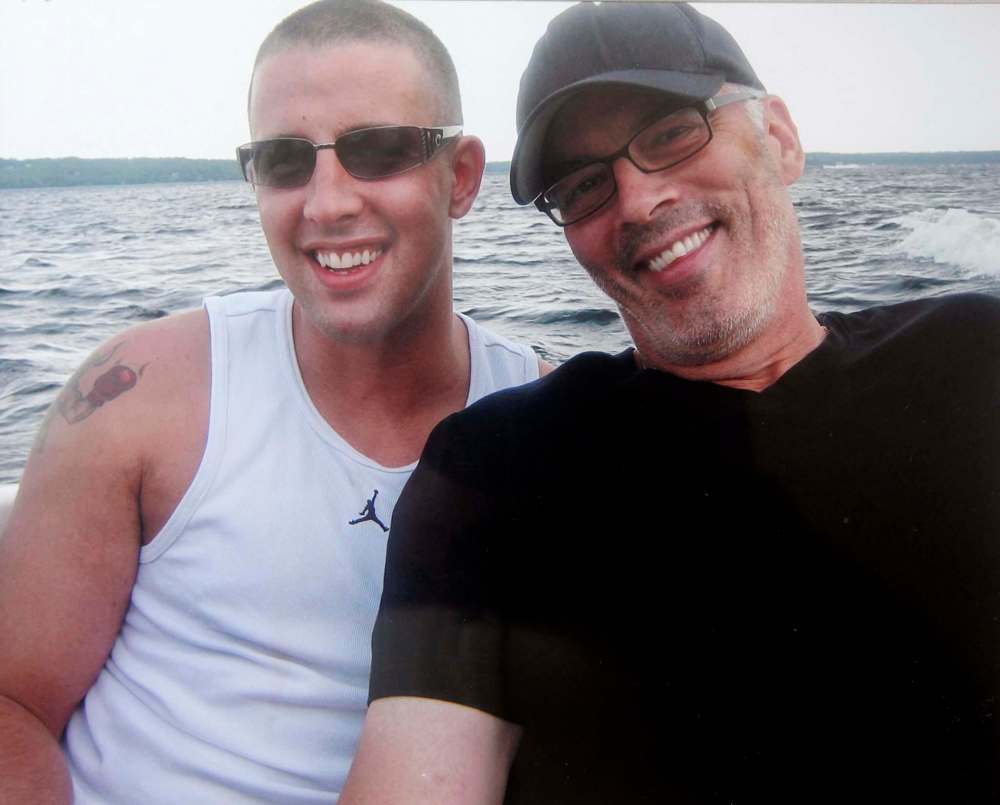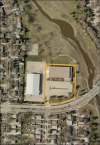‘No backroom deal’ behind addictions facility: Oake
Broadcaster says secrecy was in keeping with city protocol
Advertisement
Read this article for free:
or
Already have an account? Log in here »
To continue reading, please subscribe:
Monthly Digital Subscription
$0 for the first 4 weeks*
- Enjoy unlimited reading on winnipegfreepress.com
- Read the E-Edition, our digital replica newspaper
- Access News Break, our award-winning app
- Play interactive puzzles
*No charge for 4 weeks then price increases to the regular rate of $19.00 plus GST every four weeks. Offer available to new and qualified returning subscribers only. Cancel any time.
Monthly Digital Subscription
$4.75/week*
- Enjoy unlimited reading on winnipegfreepress.com
- Read the E-Edition, our digital replica newspaper
- Access News Break, our award-winning app
- Play interactive puzzles
*Billed as $19 plus GST every four weeks. Cancel any time.
To continue reading, please subscribe:
Add Free Press access to your Brandon Sun subscription for only an additional
$1 for the first 4 weeks*
*Your next subscription payment will increase by $1.00 and you will be charged $16.99 plus GST for four weeks. After four weeks, your payment will increase to $23.99 plus GST every four weeks.
Read unlimited articles for free today:
or
Already have an account? Log in here »
Hey there, time traveller!
This article was published 14/11/2017 (2947 days ago), so information in it may no longer be current.
CBC Sports broadcaster Scott Oake says public misunderstanding of the residential addictions facility his family foundation is trying to build in Winnipeg has prompted him to reveal its plans before he thought it was appropriate.
Oake said Tuesday he kept the project designs under wraps because that was the process he was instructed to follow, adding it was not an attempt to mislead the public.
“We have nothing to hide. There was no backroom deal here, as far we were concerned,” Oake told the Free Press. “The process was the process that was described to us.

“If (City of Winnipeg) councillors or anybody else has a problem with the process, they best take that up with city hall. It wasn’t designed by us. We did what we were asked to do.”
Oake was responding to public criticism aired at two community meetings last week, where residents surrounding the shuttered Vimy Arena in St. James voiced their concern about the proposal.
The veteran Hockey Night in Canada broadcaster has been in discussions with the province and city officials, including Mayor Brian Bowman, for several months to build the facility in recognition of his son, Bruce, who died of a drug overdose in 2011.
Oake said he asked government leaders for land and the arena property was identified.
The Oake family and their foundation want to build a 50-bed, long-term residential treatment facility for men — the Bruce Oake Recovery Centre — a $14-million, 20,000- to 30,000-square-foot space on the park-like setting of the old Vimy Arena, which backs onto Sturgeon Creek.
The facility would be run on a non-profit basis, operated by a Calgary-based group, Fresh Start, which operates a similar facility in that city.
Bowman and Oake told reporters two weeks ago they are expecting an administrative report before the end of the year that will outline a process to transfer the arena property to the Oake foundation.
But Oake insisted Tuesday it did not mean “the fix is in” on the project.
“It was never a case where either level of government is saying to us, ‘Yeah, we’re going to get that land for you,’” Oake said.
“The process outlined to us was one that we followed and we’re at a step now where city council has to vote on it… There’s a vote required here and I reject out of hand the notion that anyone ever said that they’re getting us that land.”
Oake, along with his family and an architect, briefed city councillors during a closed-door session Tuesday morning.
Area Coun. Shawn Dobson, one of a half-dozen councillors who sat in on the briefing, said he remains concerned with how Bowman and senior government officials planned to orchestrate the transfer of the arena, adding there is another non-profit community group in the neighbourhood that also wants use of the building.
“My residents are opposed to it and I still am,” Dobson (St. Charles) said. “What was done here was not right. The process isn’t being followed.”
Coun. Janice Lukes, who also attended the briefing, said the public has been misinformed about the addictions facility, explaining a similar one, the Behavioural Health Foundation, has operated in her South Winnipeg–St. Norbert ward for 40 years without incident.
Lukes said it appears the Oake family and their project have been caught up in another example of city officials ignoring proper procedures.
“I have asked for an explanation from the mayor’s office and the CAO’s office has to why this unfolded the way it has and, as usual, I’ve received no response,” she said.
Oake said he didn’t want to go to the public with the proposal until the foundation had acquired the property, adding he now is planning to reach out to area residents.
“There has been enough misinformation out there that we’re going to address it in the near future,” Oake said. “I don’t want to say how exactly but we’re going to do something… We have to give people the facts and we have to hope, that once presented with the facts, they’ll look at this with more of an open mind.”
Oake said there is a belief a residential treatment centre does not belong in residential areas, but there are many successful examples that should allay residents’ concerns.
aldo.santin@freepress.mb.ca
History
Updated on Tuesday, November 14, 2017 7:07 PM CST: tweaks headline
Updated on Wednesday, November 15, 2017 7:17 AM CST: Edited





